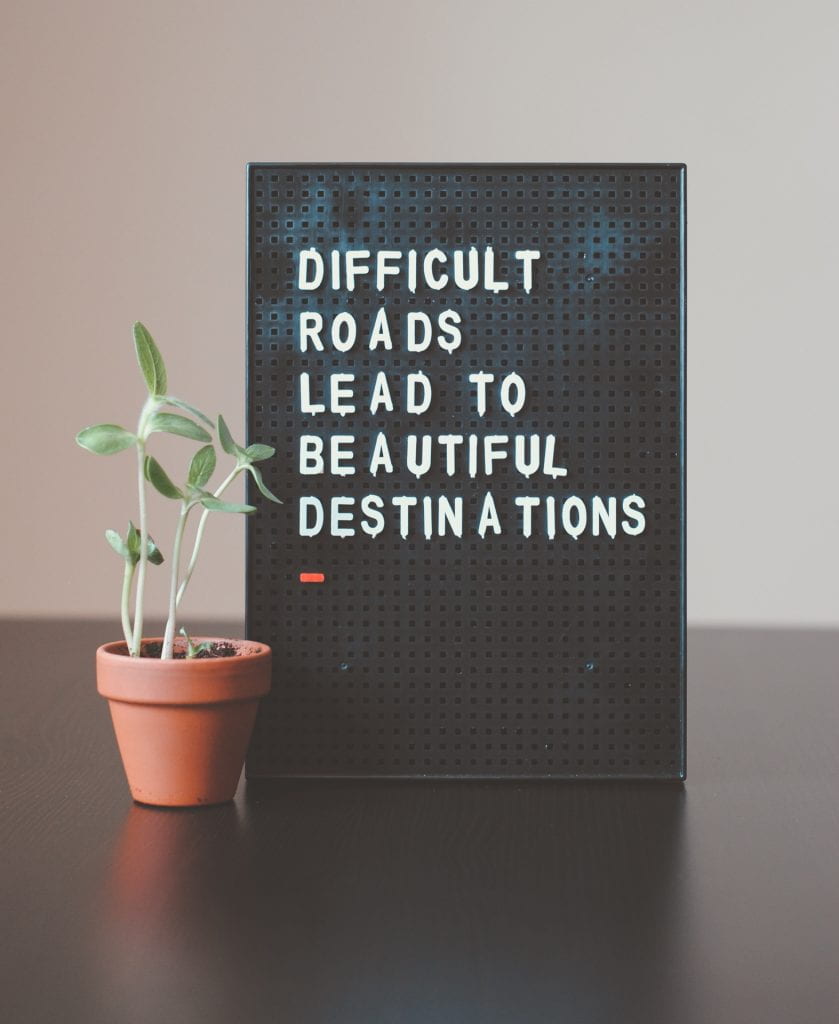It’s normal to be feeling anxious and stressed during this time. In order for us to keep our loved ones safe, it’s vital that we practice social distancing and that we stay in our homes as much as possible. Of course, in doing so, we are resisting our innate human need to be social and build/maintain relationships with others to our fullest capacity.
The CDC notes that stress during an infectious disease outbreak can include:
- Fear and worry about your own health and the health of your loved ones
- Changes in sleep or eating patterns
- Difficulty sleeping or concentrating
- Worsening of chronic health problems
- Worsening of mental health conditions
- Increased use of alcohol, tobacco, or other drugs
There are a few things that you can do during this time to increase your happiness and decrease your feelings of isolation and stress. See some of these ways below.
Having a healthy life-work balance
Now that a majority of us are working from home (both school wise and job/internship wise), it can be easy to begin to conflate work life and home life. Now you can wake up later, do your work from your bed, and work later to finish up work that you wouldn’t normally get to. While these conflations may seem tempting, it is important to distinguish a separation between working and relaxation.
Some ways to do this could be setting an alarm to wake up earlier than your first class of the day, having a designated work station (if possible), and having a certain amount of hours or black of time dedicated to working each day. Take breaks the same ways and in the same duration that you would if you had in-person classes.
Stay in Touch
Use this time of physical isolation to verbally and emotionally connect with people that you care about. If you are in quarantine with your family, take the time out to eat a meal with them, watch a movie, and/or play a fun game. Schedule facetime sessions or phone calls with some of your close friends. Check-in on some of those more long-distance friends that you’ve lost contact with. Stay in touch with people however you can avoid feeling isolated.
Ask for Help
Feelings of stress and anxiety are very natural during this time period. Don’t feel afraid to tap into resources that are readily available to you to help you cope! Now more than ever, it’s important to pay attention to our moods and our coping mechanisms:
- Wellness Check-Ins
- The Student Wellness Center is offering virtual wellness check-ins via Zoom to help students navigate the transition to online learning, refer them to additional resources if needed, and "just be there to support students," Barthelmes says. To request a check-in, email student.wellness.center@dartmouth.edu.
- Counseling
- Students
- Dartmouth College Health Service offers counseling, including 24-hour crisis counseling for students or those who are concerned about a student. Currently, counseling is being provided by phone, and will soon also be available via Zoom. The health service can also help students who live outside of the state connect with mental health professionals nearer to them, when necessary.
- To access these services, email counseling@dartmouth.edu or call 603-646-9442 weekdays, from 8 a.m.-4 p.m. After hours, call safety and security at 603-646-4000.
- Students
-
- Staff and Faculty
- Can call the Faculty/Employee Assistance Program (FEAP) at 844-216-8308. The services are also available for family members.
- Can also contact FEAP counselor Sharon Morisi directly at sharon.a.morisi@dartmouth.edu. Morisi is available via Zoom and telephone.
- Staff and Faculty
- Pastoral Counseling
- Daveen Litwin, the College chaplain, and the United Campus Ministry, representing Jewish, Hindu, Muslim, Christian, Buddhist, and many other faith traditions offer confidential virtual counseling to students, faculty, and staff.
- To make an appointment, email college.chaplain@dartmouth.edu.
Physical Fitness
Physical Fitness is of the utmost importance during stressful times. Exercise releases endorphins that aid in stress relief while also aiding in overall mind and body health. In fact, “Researchers believe that during vigorous aerobic exercise, the ‘anxiety-sensitive’ person is forced to tolerate many of the same symptoms (that is, rapid heart rate, sweating, and rapid breathing) that frighten him or her during periods of anxiety. Over time, the ‘anxiety-sensitive’ individual who continues to exercise vigorously can learn that these symptoms of arousal are typically not dangerous, and the fear that these symptoms trigger gradually decreases in intensity” (Salmon & Charney).
Take advantage of virtual workouts and the great outdoors while gyms are closed. A few suggestions:
- Go for a brisk walk or run.
- Hop on your bicycle for a tour of your neighborhood.
- Try a new activity like yoga, Tai Chi or Zumba.
- Create an obstacle course at your home. Include activities like jumping jacks, pushups and squats. Then challenge your loved ones to virtual competitions.
- Check out other free virtual workshops on youtube. My favorite is Blogilates.
Eat Well
It's important to minimize our excursions to the grocery store as much as possible to limit the spread of COVID-19. Consider online grocery shopping or home delivery options. Of course, fruits, vegetables, and other perishable foods are very important for overall nutritional health.
So if and when you need to go to the grocery store, maintain a safe distance between yourself and others (at least 6 feet), wipe down surfaces with disinfectant wipes, avoid touching your face, and wash your hands before and after shopping. If possible, also wear a mask or some sort of face-covering to protect other people in case you are asymptomatic.
With grocery stores limiting the purchase of specific items and advising people shop less often, eating well can be difficult. Make it more manageable with these strategies:
- Purchase shelf-stable and frozen foods. Staples such as frozen and canned produce, beans, and lentils will keep longer and are easy to incorporate into recipes.
- Take inventory of the items in your kitchen and get creative with cooking. Choose a recipe site where you can plug in ingredients you have on hand and see what pops up. (You can also browse our collection of tasty, healthy recipes.)
- Pay attention to portion sizes. When we're cooped up inside, it's easy to overindulge and/or stress eat. Try to maintain your regular eating habits as much as possible and minimize your reliance on takeout and drive-thru options. In addition, try to productively channel stress and boredom elsewhere, whether by venting to a good friend, writing down your feelings or diving into a good book.
Stress Well
Speaking of stress, reduced access to food and daily essentials is stressful. With gyms closed, sporting activities shut down, and bars and restaurants off-limits, we're also being cut off from our friends and loved ones. But you have more control over your stressors than you think. A few ideas:
- Limit the news. Watching the news all day can increase anxiety levels. Tune in to the morning or evening news and turn to reliable sources of information only once or twice a day.
- Take advantage of stress management techniques. Think meditation, deep breathing and journaling.
- Stay in touch with friends and family. Touch base through phone calls, online games, video chats and virtual happy hours.
Now that we’ve covered the basics, read on for some additional wellness resources from our Ivy-plus peer institutions:
Duke
- https://studentaffairs.duke.edu/duwell/what-wellness/covidresources
- https://global.duke.edu/how-cope-coronavirus-stress
- https://global.duke.edu/psychologist-takes-social-distancing?utm_source=newsletter&utm_medium=email&utm_content=A%20blueprint%20for%C2%A0mental%20health%20support%20during%20isolation&utm_campaign=dukedailymarch31_20
Harvard
- https://academicresourcecenter.harvard.edu/learning-remotely-well-being
- https://dso.college.harvard.edu/mental-and-physical-wellbeing
References:
- Aimee Minbiole, 'You Can Trust Yourself': Staying Home, Staying Well
- Eric Barker, How To Be Resilient: 5 Secrets To Mental Toughness (Pandemic Edition)
- Bethany Thayer, MS, RDN, Fostering Wellness During The COVID-19 OutbreakCoronavirus Disease 2019 (COVID-19)
- Jamie Ducharme, How to Stay Physically and Mentally Healthy While COVID-19 Has You Stuck at Home






